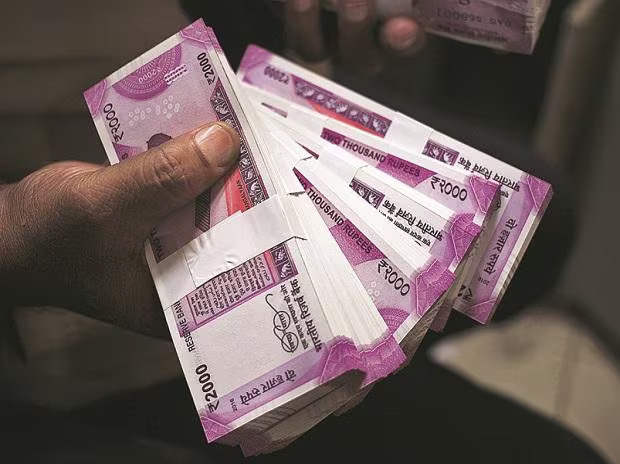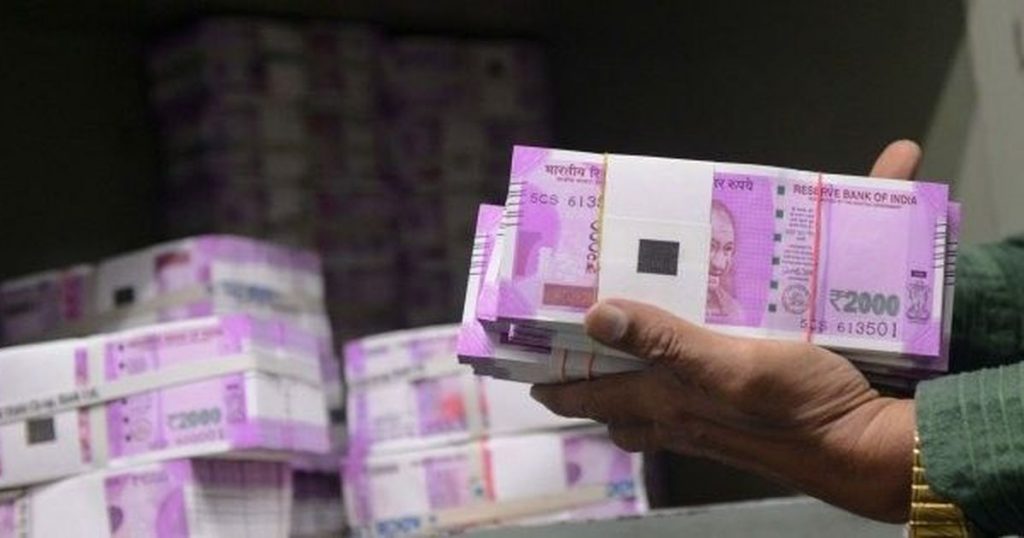Black money, a clandestine force undermining a nation’s fiscal health, continues to cast a shadow over India’s economic landscape. This article delves into the intricate layers of black money, exploring its various forms, its historical entanglement with real estate, the sobering reality of income tax compliance in India, and the government’s multifaceted strategies, including the bold move of demonetization, to combat this pervasive economic challenge.
Understanding Black Money
At its core, black money embodies funds deliberately hidden from tax authorities, either earned through illicit means or concealed to evade tax obligations. The repercussions of this clandestine economy extend beyond individual transactions, impacting a country’s official economic indicators and Gross Domestic Product (GDP).

Let me explain to you about Black Money with a practical example –
Scenario: Arjun goes to buy a high-end smartphone from a local electronics vendor. The listed price is ₹50,000.
Vendor to Arjun: “If you need an official bill, the price is ₹50,000. But if you don’t want a bill, you can have it for ₹48,000, payable in cash.”
Analysis: In this scenario, if Arjun opts to pay ₹48,000 in cash without receiving an official bill, the vendor might not report this transaction to tax authorities. The ₹48,000 becomes part of the vendor’s “black money.” The vendor benefits by avoiding taxes on that sale, and Arjun gets a discount. But the economy suffers because this transaction is hidden from the official records and no tax revenue is generated from it. This is a simple but common way black money can be generated in day-to-day transactions.
Black Money comes in various forms, but it proliferates primarily in few ways:
- Physical Cash: This is the most straightforward form. It consists of money that hasn’t been reported to tax authorities. Such money is often stored in safe deposit boxes or other secret places.
- Real Estate Transactions: When properties are bought or sold, a part of the transaction might be paid in cash and not officially recorded. This results in a lower declared transaction value, reducing stamp duty and capital gains tax.
- Bullion and Jewellery: Buying gold, diamonds, and other precious items in cash can convert black money into assets which are difficult to trace back to their original purchase.
- Shell Companies and Offshore Accounts: Creating fictitious entities that run no real operations but exist to launder money, evade taxes, or conduct other illicit activities.
- Trade Mis-invoicing: Manipulating the price, quantity, or quality of a product or service on an invoice allows evaders to shift substantial amounts of money across international borders.
- Hawala Transactions: An informal and ancient system of transferring money where money is paid to an agent who then instructs an associate in the recipient’s country or area to pay the final recipient.
- Digital and Cryptocurrencies: While digital currencies can be used for legitimate purposes, they can also be used to launder money or hide from tax authorities.
Real estate has historically been a favoured sector for parking black money worldwide, and India is no exception. Here’s an analysis of how real estate has played a role in the storage and exchange of black money:
- Undervaluing Properties: One common practice is to undervalue the actual transaction price of properties in the official documents, paying the difference in unaccounted cash. This results in reduced stamp duties and other taxes.
- Land Banking: Purchasing large tracts of undeveloped land with illicit funds. Over time, as the area develops, the value of this land can increase manifold, providing substantial returns on the initial black money investment.
- Shell Companies: There are instances where shell or dummy corporations are established to buy properties, effectively masking the real owner’s identity.
- Foreign Investments: With globalization and eased foreign investment routes, it became easier for people to invest black money in real estate properties abroad, furthering money laundering efforts.
- Rental Income: Rent generated from properties can often go unreported or underreported, especially in cases where the transactions are in cash.
Many of you might be curious about how many of India’s 140 crore population pay taxes. Let’s delve into the specifics to find out the exact number.
Just about 1-2 per cent of all Indians pay income tax and contribute as much as 27 per cent of India’s total tax collections.
Finance Minister Nirmala Sitharaman presented this data as part of a reply to a question in the Lok Sabha on 25th July 2023. The data shows that income tax compliance has increased over the period 2019-20 to 2022-23, as measured by the number of people filing tax returns. However, within this, the number of people with zero tax incidence has grown faster.

While the number of people filing income tax returns has grown by a compounded average growth of 3.4 per cent between 2019-20 and 2022-23, the number of people filing returns but who have no tax incidence has grown by 15.5 per cent over the same period.
The data shows that 7.4 crore people filed income tax returns in 2022-23, of which 5.16 crore people, or 70 per cent, had zero tax liability. This means that just 2.24 crore people paid income tax in 2022-23, which works out to just about 1.6 per cent of the total population in India.
Of course, the total population of India includes those who are not liable to either file returns or pay tax, such as those below the age of 18 years, but tax experts feel that even after taking this into account, only a tiny proportion of the population actually pays income tax.
Demonetization and the Move to Digital Transactions: A Blow to Black Money
Demonetization, introduced in India on November 8, 2016, was a bold move by the government to curb the menace of black money. By invalidating the ₹500 and ₹1,000 banknotes, the primary objective was to eliminate counterfeit currency, tackle corruption, and reduce the accumulation of “black money” – money on which taxes have not been paid to the government.
How Demonetization Targeted Black Money:
- Cash Hoards Rendered Worthless: Those who hoarded large amounts of cash, especially in high-denomination notes, found their stockpiles suddenly worthless, forcing them to either declare it and face heavy penalties or risk losing it altogether.
- Forced Deposits into Bank Accounts: To convert their cash holdings into valid denominations, individuals had to deposit them into bank accounts. This move brought a substantial amount of money into the formal banking system, making it traceable and taxable.
- Increased Scrutiny: Post-demonetization, there was an increase in the number of tax audits and investigations, making tax evasion riskier and less attractive.
Shift to Digital Transactions:
After demonetization, a cash shortage led to a surge in digital payment usage. Both the government and private sector vigorously pushed digital wallets, UPI apps, and online transaction platforms.
- Transparency and Traceability: Digital transactions leave a trail. This makes it difficult for businesses and individuals to under-report transactions or hide their income.
- Promotion of a Cashless Economy: The government used the momentum created by demonetization to promote digital transactions. Various incentives, like discounts on digital payments for certain services, were introduced to lure people into the digital transaction ecosystem.
- Reduced Dependency on Cash: With digital transactions becoming more prevalent, the need to hold large amounts of physical cash, especially for high-value transactions, decreased. This inadvertently reduced the ability to deal with unaccounted money.
Steps that have to be implemented in order To curb the menace of black money:
- Strengthening Legislation: Introduce strict laws against tax evasion, money laundering, and illicit financial flows.
- Digital Transactions: Promote cashless transactions to ensure a traceable financial trail.
- International Cooperation: Collaborate with other countries to share information about financial transactions and accounts held by citizens abroad.
- Transparent Real Estate Transactions: Regulate and monitor real estate transactions to prevent undervaluation and cash dealings.
- Whistleblower Incentives: Encourage whistleblowers by offering them protection and rewards for providing leads on black money.
- Tax Reforms: Simplify the tax system to encourage compliance and minimize evasion.
